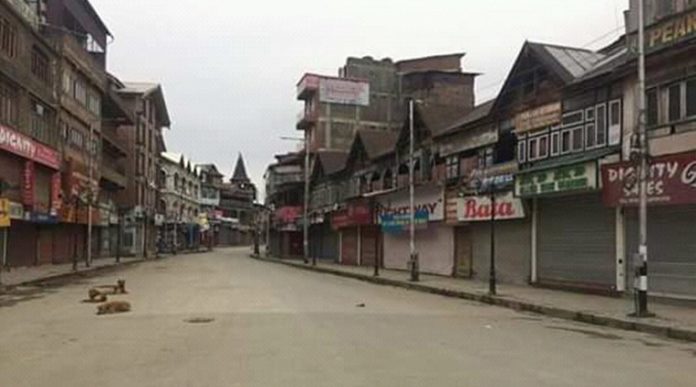Mubashir Bukhari
Srinagar (NVI): Eight months after abolition of special status of Jammu and Kashmir, the central government today notified rules specifying criteria for domicile of the newly-created Union Territory, which will entitle them to UT government jobs.
According to the Gazette notification, “a person who has resided for a period of 15- years or has studied for a period of 7 years and appeared in Class 10th /12th examination in an educational institution in J&K, will be eligible to be the resident of Union Territory.”
Persons registered as migrant by the Relief and Rehabilitation Commissioner (Migrants) in the UT of J&K will also be included in the definition.
It also includes “Children of such residents of J&K as reside outside UT of J&K in connection with their employment or business or other professional or vocational reasons.”
The domiciles will also include children of those central government officials, All India services officers, officials of public sector undertaking and autonomous body of central government, public sector banks, officials of statutory bodies, officials of central universities and recognized research institutes of central government who have served in Jammu and Kashmir for a total period of 10 years.
“Subject to the provisions of this Act, no person shall be eligible for appointment to a post carrying a pay scale of not more than Level-4 (25500) unless he is a domicile of the Union territory of Jammu and Kashmir,” reads section 5A of The Jammu and Kashmir Civil Services (Decentralization and Recruitment) Act.
The level 4 includes posts like Junior Assistant, Constable, which is considered as the lowest category of non-gazetted posts. This means domiciles of J&K UT would have exclusive right on class-4th and non-gazetted posts to be advertised by the Services.
The government has already repealed 29 laws of the erstwhile state while 109 have been amended. Section 5A states that no person shall be eligible for appointment to a post carrying a pay scale for not more than level 4 “unless he is a domicile of UT of J&K.”
Through the same order, the Centre has repealed the J&K civil services (special provisions) Act.
The decision comes eight months after the central government abolished the special status of J&K, granted under Article 370. The Centre also had scrapped Article 35A, which defined the Permanent Residents of J&K who were exclusively entitled to the state government jobs and admission to state-run professional educational institutions.
After that move, there was anxiety among local populace in Jammu and Kashmir that the abolition of special status would open floodgates and they would stand to lose special privileges in UT government jobs and professional educational institutions.







